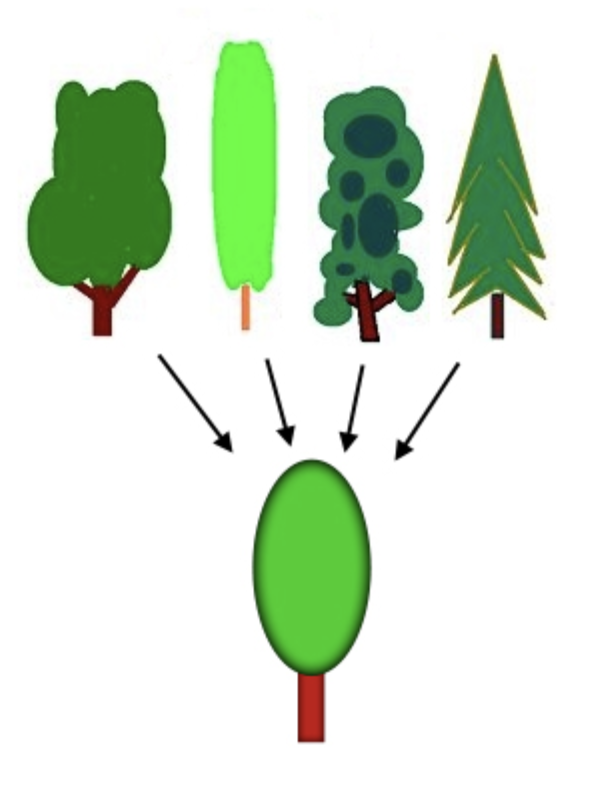Thinking about thinking - Metacognition

What's your way of learning or building something new? I used to be jumping into it right away, do some tutorials, work on some projects. Short-term, this is exciting. But after a while, you notice that you're not progressing as fast as you expected. Then you might feel depressed and give up.
If you do something without thinking, this kind of feeling must be familiar to you. I have this trouble as well. When I come across the concept of "metacognition," I realized it could provide more effective learning and making.
Definition
Metacognition is "cognition about cognition," "thinking about thinking," "knowing about knowing." It includes knowledge about your brain, regulation of your cognition, and when & how to use particular learning or problem-solving strategies.
For example, we all know what a tree is. But let's think about our process of how we know it? We can say a plant that has green leaves and a stem is a tree. This knowing of our mind that it can abstract similar parts or behaviors of different things to get a concept is a kind of metacognition.

When you think about it, it’s a little wired but amazing. Your brain uses itself to know and control itself. It looks like a recursive loop.
Components
Metacognition is classified into three components:
Metacognitive knowledge (also called metacognitive awareness) is what individuals know about themselves and others as cognitive processors.
For example, when a computer has metacognitive knowledge, it knows what type of hardware, version of the operating system, and its software. It might also know how to solve some tasks like word processing or gaming with these abilities. And depending on the task, it can choose to use its integral or discrete graphic card...
- Declarative knowledge: refers to knowledge about oneself as a learner and what factors can influence one's performance. Declarative knowledge can also be referred to as "world knowledge."
- Procedural knowledge: refers to knowledge about doing things. This type of knowledge is displayed as heuristics and strategies. A high degree of procedural knowledge can allow individuals to perform tasks more automatically. This is achieved through a large variety of strategies that can be accessed more efficiently.
- Conditional knowledge: refers to knowing when and why to use declarative and procedural knowledge. It allows students to allocate their resources when using strategies. This, in turn, allows the strategies to become more effective.
Metacognitive regulation is the regulation of cognition and learning experiences through activities that help people control their learning.
For example, let’s use metacognitive regulation to help us concentrate on a 60-minute class. First, you must consciously evaluate whether you are paying attention, like ask yourself what the professor talked about 5 minutes ago. If you can’t remember, you must control yourself to choose a strategy like away from distractions and directly look at the professor. Five minutes later, you execute this strategy, check whether you know what the professor talked about. If you still failed, you try another strategy to keep notes on a notebook and execute it again. Finally, it works, you can catch up with the professor, and you feel good. Until then, you might quit metacognitive regulation.
- Planning: refers to the appropriate selection of strategies and the correct allocation of resources that affect task performance.
- Monitoring: refers to one's awareness of comprehension and task performance
- Evaluating: refers to appraising the final product of a task and the efficiency at which the task was performed. This can include re-evaluating strategies that were used.
Metacognitive experiences are those experiences that have something to do with the current, on-going cognitive endeavor.
How to improve metacognitive skills
First, this is actually a mindset, and you need to be aware of it and consciously apply it in your daily life. Here I give three techniques to develop your metacognitive skills.
Start with asking right questions.
Why am I doing this? What do I know? What do I not know? How do I know this is true? What criteria am I using? What strategies do I have to tackle this problem? Etc.
I like to have a "meta" section in every tool to remind me how I should use it (like in Notion).
Keep journal and reflect metacognition experience (awareness, thoughts, feelings).
What new do you know about your self today, new facts about your brain, or new facts about your abilities? Write down your thoughts, feelings, three most successful things, most story-worthy moments, etc.
When I procrastinate, I will realize this is procrastination; this is a normal situation. I can do something about it—either use strategy to overcome it or procrastinate for just a few minutes.
Share, discuss thoughts and seek feedback.
Share and discuss your thoughts with your friends, families, and on social platforms. You will get a lot of responses that you can use to reflect and sharpen your knowledge.
When I talk about this with my families, they will give positive feedbacks like, "I have this feeling as well!" Then you know you are not alone.
Conclusion
Metacognitive skills are domain-general in nature, and there are no specific skills for certain subject areas. The metacognitive skills used to review an essay are the same as those used to verify an answer to a math question.
Notice this powerful skill and keep improving, and applying it to your learning and working process will greatly benefit you.
